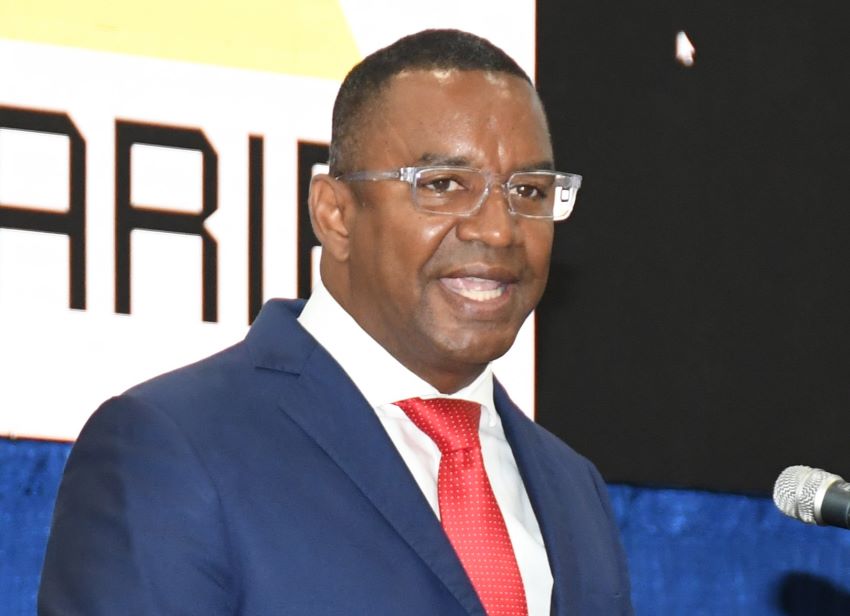
Minister of Home Affairs and Information, Wilfred Abrahams, has identified regional and international cooperation as critical to combatting transnational organised crime.
Mr. Abrahams expressed this view today as he addressed the opening of the two-day Annual General Meeting of the Asset Recovery Inter-Agency Network for the Caribbean (ARIN-CARIB), at the Lloyd Erskine Sandiford Centre.
In emphasising the importance of cooperation, the Minister said individual countries were too small and under resourced to work in this area on their own.
“If we do not pool our resources, and by resources I don’t mean just financial resources; if we don’t pool our technological resources, our intellectual capacity, our training advancements, we are always going to be behind the eight-ball, and behind the criminals, and always playing catchup,” he told his audience.
He noted that Government has placed asset recovery high on its agenda in keeping with regional and international partners. He explained that asset recovery is assuming increasing importance in work to combat corruption and money laundering, which are two key facets of transnational organised crime.
“The Government of Barbados is steadfastly committed to promoting better cooperation and information-sharing among national, regional, and international authorities, aimed at enhancing global cooperation.
“We have no doubt that the complexities of cross-border investigations and the sophistication of money laundering schemes continue to pose major obstacles, which require constant changes – constant changes in our collective mindset, standards and approaches. Our only contention on this front is that standards must be flexible and reflective of our Caribbean reality,” Mr. Abrahams stated.
He expressed the view that the primary challenge in combatting transnational crime is jurisdictional fragmentation. He said criminals exploited the differences in legal systems, enforcement capabilities, and international cooperation mechanisms to evade capture and prosecution.
“This demands, on the flip side, that we adopt a more comprehensive and coordinated approach to law enforcement and judicial processes. As such, effective international cooperation is paramount in addressing transnational crime,” he underscored.
Mr. Abrahams stressed the importance of accepting and adopting technology and innovation as vital tools in the fight against crime. He posited that advanced data analytics, artificial intelligence, and blockchain technology could enhance governments’ ability to track and disrupt criminal networks and improve their efforts towards compliance by leaps and bounds.
He lauded ARIN-CARIB, saying that from inception it had demonstrated the importance of a collaborative approach towards expediting legal processes and improving law enforcement effectiveness across borders.
Deputy Executive Director of the Regional Security System, Graham Archer, described asset recovery as a powerful tool that is critical in the fight against organised crime and corruption.
He also underlined the importance of cooperation among regional and international enforcement agencies, stating that it “is paramount in this fight”.
Assistant Director (Projects) at CARICOM IMPACS, Nadine Bushell, said that institution recently concluded a study on digital currencies and assets, and their link to transnational organised crime. She added that recommendations from the study would be shared with participants within the coming months.
